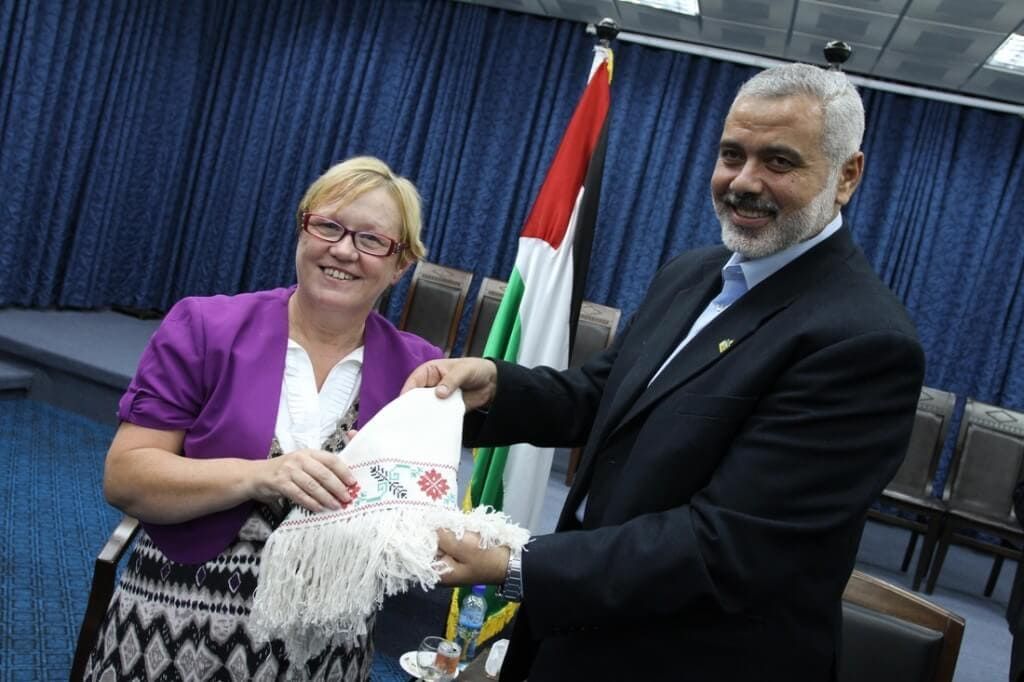DCI-PS: A Politicized, Anti-Israel NGO
We already know only too well from bitter experience, The Guardian’s anti-Israel agenda. But what of Defence for Children International – Palestine Section, the non-governmental organization (NGO) that collected Palestinian testimonies and collaborated with The Guardian?
According to NGO Monitor:
- DCI-PS supports BDS campaigns, and is an active participant in boycott efforts in the framework of the UN and other venues. Also lobbies the UN and the EU to promote these campaigns.
- Calls for Israel to “accept historical and legal responsibility for the Nakba, and recognise the principle of the right to return that was endorsed by the United Nations General Assembly in its Resolution No. 194 in 1948.”
- Published an ‘urgent appeal,’ calling the UN Human Rights Council members to “endorse all the recommendations contained in the Goldstone report…and submit the report to the General Assembly and the Prosecutor of the ICC for appropriate action.”
In addition, CIF Watch outlines the background of DCI-PS board member Shahwan Jabarin, a member of the Popular Front for the Liberation of Palestine (PFLP) terrorist group – responsible for the murder of innocent Israelis, including children.
This is only a small selection of examples of DCI-PS’s politicized and anti-Israel agenda that puts its credibility in doubt. After all, if this NGO is actively seeking evidence with which to attack Israel, then coaxing questionable testimony from minors of questionable character who may have already been involved in criminal or terrorist activity may be easier than it should.
The Guardian’s Agenda Journalism
If any further proof were needed of The Guardian’s brand of agenda-driven journalism, it appeared the day after the original article. This follow-up focused on the UK government’s response to the allegations raised by The Guardian.
This is a prime example of how a biased and one-sided article in the media can have damaging consequences way beyond simple public relations damage.
Commenting to The Guardian is Sandra Osborne MP, who has been leading the campaign in Parliament. The photo below of Osborne with Hamas PM Ismail Haniyeh taken in July 2011 is an indication of where her sympathies lie.
Harry’s Place blog documents Osborne’s thought’s on the “moderate” Hamas leader:
We were also able to meet with Ismail Haniyeh who is recognised as PM in Gaza (while Fayyad is still seen as PM in the West Bank), who heads up the successful Hamas Parliamentary Group. He is a popular figure, living modestly locally in Gaza. He has been pivotal in taking Hamas down a more moderate road leading to a renunciation of violence and keeping the more militant factions within Hamas under control while promoting engagement with rival Fatah. We discussed a wide range of issues but he made it clear that some of the most important could not be seriously addressed until Israel recognised the Palestinian State and real progress was made.
Advocacy journalism is not, by itself, unacceptable. After all, it is the job of a free media to shine the spotlight on untoward behavior wherever it might be found. Indeed, the Israeli press is usually the first to expose issues that need to be investigated in a functioning liberal democracy.
What is unacceptable, however, is The Guardian’s relentless campaign to portray Israel in as negative a light as possible. If only the children of Syria or any number of other places in the Middle East had Guardian reporters advocating on their behalf instead of on the one place where the mechanisms of accountability and rule of law actually exist.
It would be naive to believe that there have never been any Israeli violations of those laws specifically meant to protect the rights of minors in detention. If these cases exist, there are authorities tasked with investigating and dealing with such deviations. This is not, however, the norm.
The Guardian, in collaboration with DCI-PS, has deliberately and falsely portrayed Israel as a country that tolerates the torture and abuse of Palestinian children, which is definitively not the case. Having to arrest, prosecute and imprison minors is by its very nature a difficult issue. Unfortunately, Israel has been forced out of necessity to address a problem arising from Palestinian society.
So where then is the real child abuse?
Send your considered comments to The Guardian – [email protected]
Please consider clicking +1, Tweet, Like or linking to this article on your blog or website. Correcting the record on Israel’s treatment of Palestinian minors is only effective when it reaches a large readership, especially through the Google search engine. Creating a link to this page with the text “detained Palestinian children” helps this article reach the first page search results for the term.
Update: Israel Responds to Guardian Child Abuse Charge
Image: CC BY-SA HonestReporting.com, flickr/DaLee_pl.



